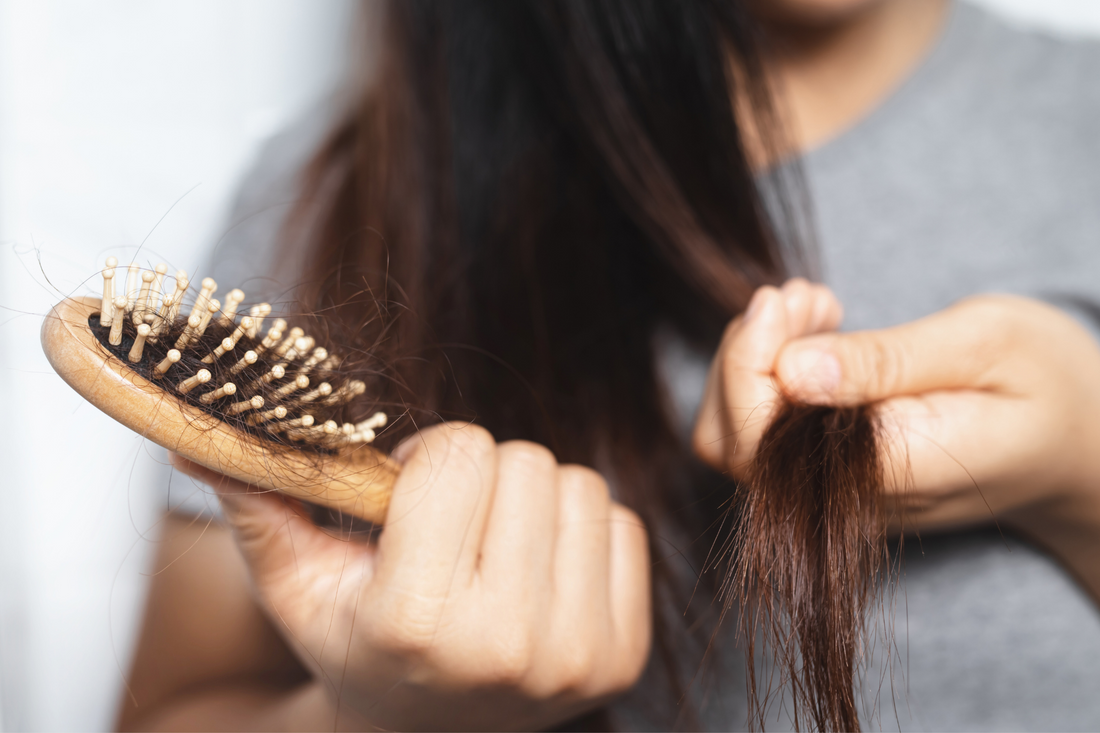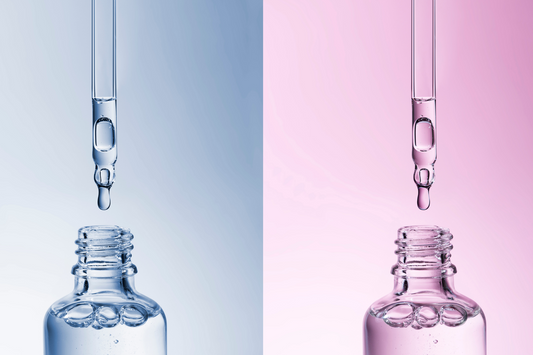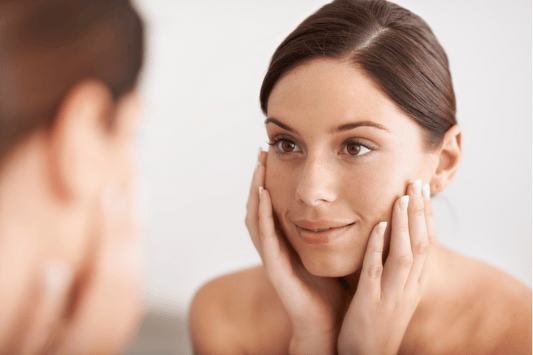Updated: 05/16/2022
If you notice hair in the shower, you're not alone. Hair shedding is totally normal, and most hair shedding happens in the shower. However, if you notice clumps of hair besides suds and water hovering around the shower drain, you might want to consider hair loss as a potential culprit.
Ultimately, it doesn’t matter if you’re female or male. Hair shedding can potentially impact anyone. So how much hair is normal to lose when you’re in the shower and what are some remedies that can help combat hair shedding?
How Much Hair Is Normal To Lose in the Shower Per Day?
A normal amount of hair to lose per day is around 50 to 100 hairs. If you suspect you are losing more than 100 strands of hair per day, it might be time to talk to your doctor.
It is important to consider what type of hair you have. The thicker the your hair is, the greater the potential you have to lose more hair. This is simply due to having a higher number of hairs. The shorter the hair, the less noticeable the shedding, so you may not see as much hair loss in the shower.
Washing your hair can contribute to hair shedding, especially if you wash your hair more than a few times a week. Depending on your hair type, you may need to wash your hair more often than others.
Why Am I Finding More Hair in the Drain?
Below are some factors that can lead to hair loss in the shower:
Type of Brush
The type of brush you are using could impact any hair loss. By combing through your hair with a wide-tooth comb, you can help prevent future damage and breakage. Of course, it is still very important to take your time whenever you brush your hair. Brushing or combing your hair slowly and gently will be easier on your hair.
Hair Style
Another factor that can affect hair loss is how you style your hair. For instance, if you wear your hair in a tight ponytail every day, you might notice more hair falling out in your shower than when you let your hair down.
If you wear hair accessories that are too tight on your hair, this could add tension/stress and potentially lead to hair loss. The same result could come from hairstyles that involve hair being pulled back or hairstyles that require teasing or brushback styling. If you have any questions about your hairstyle and safety for your hair, consult with a hairstylist for guidance.
Hats
If you typically wear hats or beanies, this could also be a reason for your hair loss. Try keeping your hat-wearing to a minimum.
Brushing Your Hair
Typically, hair is at its most fragile when it is wet. Brushing your hair while it's wet could cause damage and breakage, leading to hair loss. Make sure you aren’t tugging or pulling at your hair as you brush it, regardless of whether it’s wet or dry.
High Heat
The higher the heat of the styling tool, the dryer your hair becomes. This could create brittle and damaged hair. Whenever possible, try to let your hair dry naturally and avoid using styling tools often.
Chemical Damage
If you get your hair done often, you might want to take breaks from potentially-damaging treatments. Over-processed hair due to chemicals can become brittle and straw-like, and easily sees breakage.
Weather
Believe it or not, the weather might be responsible for the large number of strands you see in the drain. The summer and winter months tend to be the harshest on hair, leading to dehydration and split ends.
Vitamin Deficiency
An unhealthy diet or vitamin deficiency could potentially play a part in hair loss. When you do not have enough protein in your diet, the absence of important amino acids found in protein can slow down new hair follicles from forming.
Vitamin deficiency could also be to blame. Vitamin D is needed to generate new hair follicles. In addition, if you aren’t getting enough vitamin A, your scalp may have trouble getting enough moisture to support hair growth. Lastly, lacking biotin or vitamin B causes your scalp to receive less oxygen.
Stress
There are three types of hair loss due to high-stress levels.
- Telogen effluvium occurs when stress causes hair roots to be in a resting state prematurely.
- Alopecia areata happens when your body attacks hair follicles.
- Trichotillomania is a disorder that results in hair pulling, leading to hair loss. It often develops in the pre-teens and is caused by stress.
If you think you are experiencing a form of hair loss, it’s always best to consult with your doctor or dermatologist for a proper diagnosis and treatment.
How Can I Reduce Hair Loss in the Shower?
Hair loss is something that can be avoided with the right remedies. Self-care is essential, and your hair should be at the top of your list especially if you are experiencing hair loss.
Here are some ways to help put a stop to your hair loss in the shower:
Reduce Stress
If you are stressed out often, your hair hair growth could be affected. To help you relax, find some time during your day to do things you enjoy. Exercising and doing hobbies that get you up and active can help minimize stress.
Diet
Taking a daily dose of vitamins and having a balanced diet are important when it comes to hair growth.
The same goes for water: drinking enough of it is essential for full body health. When you are dehydrated, your hair becomes dehydrated as well. It becomes brittle and can easily break off, potentially causing hair loss.
Hair Routine
Is your hair care routine safe for your hair? If you’re not sure, you might want to consider making some changes. If you color your hair often, getting a hair conditioning treatment may help your hair stay healthy.
It’s also a good idea to be mindful when styling your hair. When using a heat tool, be sure to start by using the least amount of heat and then slowly work your way up higher. A heat protectant can go a long way if you do decide to use a heat tool.
The same goes for water temperature. Rinsing with cool water rather than hot is another way to reduce hair shedding in the shower.
All of these are great ways to use your routine to help manage and prevent hair loss. However, if these are just not getting you to where you want to be, take a look at our Hair Revival Serum. In addition to vitamins and other hair health essentials, the breakthrough lead ingredient, ProCelinyl, was specifically discovered to target and promote follicle health, leading to thicker, fuller-looking hair. It has helped a countless number of our men and women alike turn the tides in their fight against hair loss and thinning.
Revela Supports You on Your Journey to Healthier Hair
While seeing clumps of hair in the shower can be alarming, don’t worry. Revela has you covered. In addition to being gentle with your hair, reducing heat, and eating a balanced diet, our serum can help support thicker, fuller-looking hair. We guarantee you’ll love our product (and your healthier-looking hair, too!).





